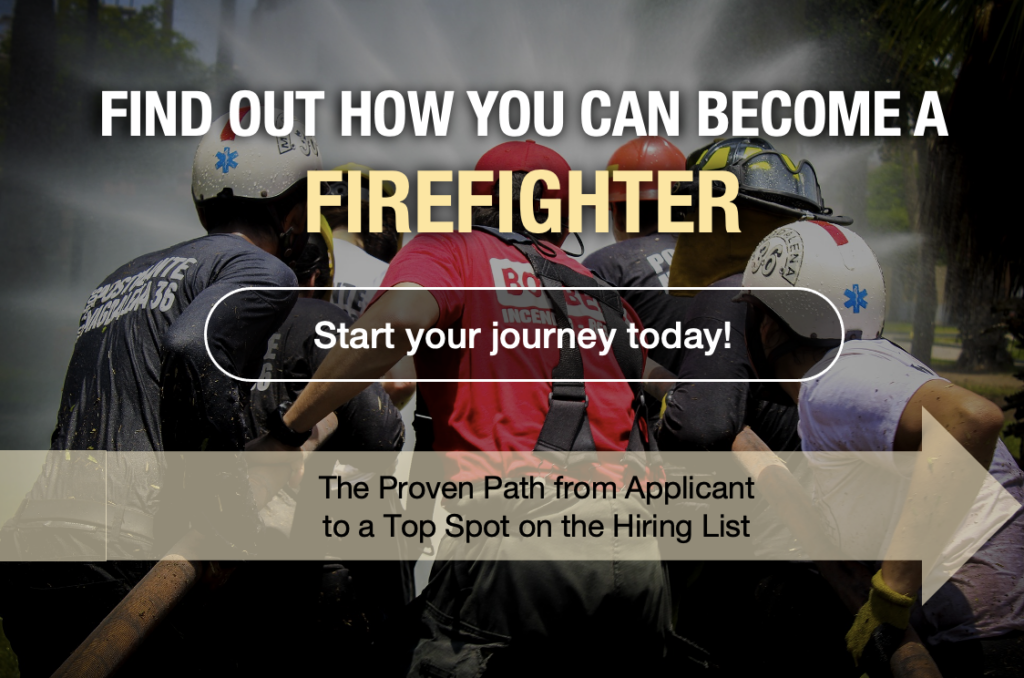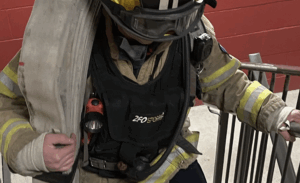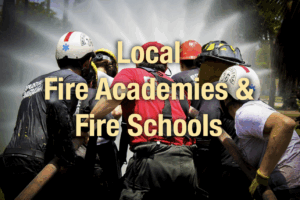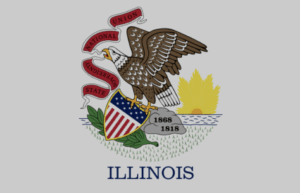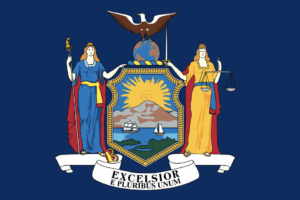In this blog, we’ve compiled various interview questions aspiring firefighters may encounter during their job-seeking process. Whether you’re a fresh recruit or a seasoned candidate looking to improve your interview skills, these questions will help you assess your readiness and refine your responses.
Firefighting is not just a job; it’s a calling. It demands physical and mental toughness, unwavering dedication, and the ability to stay calm under pressure. Our goal is to help you confidently prepare for the interview, ensuring you’re well-equipped to demonstrate your passion for serving the community and your commitment to the fire service.
So, if you’re ready to put your knowledge and preparedness to the test, dive into our compilation of firefighter interview questions. Ace that interview and take the first step toward joining the ranks of the brave men and women who protect our communities daily. Let’s get started!
Test Yourself
25 Firefighter Opening Interview Questions
Answer: Provide a brief overview of your professional background, mentioning key achievements and skills relevant to the position. This question is listed first because it is asked in some form at every interview. Go to: “Who am I? 3-minute pitch” to help you crush this question every time.
Answer: Mention strengths aligning with the job requirements and discuss how you’re improving your weaknesses.
Answer: Describe your coping mechanisms, such as time management, prioritization, and seeking support when needed.
Answer: Discuss your passion for the industry or field, desire to achieve goals, or drive to learn and grow continuously.
Answer: Share your perspective on success, emphasizing personal growth, job satisfaction, and contributing to the organization’s mission.
Answer: Detail a specific accomplishment, explaining the challenges you faced and how you overcame them.
Answer: Describe your role, contributions, and how effective teamwork led to a successful outcome.
Answer: Discuss your hobbies and interests briefly to showcase a well-rounded personality.
Answer: Mention reading industry publications, attending conferences, and seeking relevant certifications or courses.
Answer: Align your preferences with the company’s culture, highlighting adaptability when needed.
Answer: Explain your open-mindedness, willingness to learn, and how you use feedback to improve.
Answer: Detail your leadership approach, emphasizing communication, delegation, and leading by example.
Answer: Discuss your conflict resolution skills, patience, and ability to maintain professionalism.
Answer: Share your personal or professional motivations that led you to this career path.
Answer: Emphasize your commitment to ethical behavior and how it guides your decision-making.
Answer: Highlight your flexibility and eagerness to embrace change, emphasizing your ability to learn and adapt quickly.
Answer: Narrate a challenging situation, your approach to solving it, and the positive outcome.
Answer: Share your aspirations, ensuring they align with the company’s goals and mission.
Answer: Explain your organization methods, time management tools, and goal-setting techniques.
Answer: Highlight your skills, experience, and enthusiasm, showing how they align perfectly with the job and company culture.
Answer: Describe the decision-making process, considering facts, risks, and ethical implications, and explain how you reached a resolution.
Answer: Discuss your unique skills, experiences, or qualifications that make you the ideal candidate for the role.
Answer: Detail the situation, your approach to learning, and how you successfully applied the new skill or technology.
Answer: Share your resilience and ability to learn from failures, emphasizing your determination to keep moving forward.
Answer: Explain your leadership role, how you motivated your team, and the strategies you employed to overcome challenges and achieve success.
Try the FREE Written Firefighter Test

25 Firefighter Ethical Interview Questions
How to Answer: Define ethical behavior in the context of firefighting by emphasizing honesty, integrity, and professionalism. Mention the importance of safety and following established protocols.
How to Answer: Share a real-life scenario where you prioritized safety and followed ethical guidelines, even in a high-pressure situation. Explain your decision-making process and its positive outcome.
How to Answer: Describe your commitment to strict confidentiality guidelines, emphasizing that you only share such information with authorized personnel and for legitimate purposes. Stress the importance of respecting privacy.
How to Answer: Explain that you would intervene immediately, addressing the behavior professionally and respectfully. Mention your commitment to upholding a respectful and inclusive workplace and reporting the incident to supervisors as needed.
How to Answer: Discuss your commitment to ethical conduct and that you would respectfully express your concerns to the superior. Mention your willingness to offer alternative solutions that align with department values and escalate the matter if necessary.
How to Answer: Share a specific situation where you had to balance compassion and safety. Explain how you prioritized safety while minimizing risk and maintaining ethical conduct.
How to Answer: Emphasize your commitment to treating all colleagues fairly and respectfully. Discuss your active promotion of diversity and inclusion within the department.
How to Answer: Explain that your commitment to ethical conduct would lead you to report the incident to your immediate supervisor or a higher authority, providing all relevant details. Stress the importance of upholding trust in the profession.
How to Answer: Describe your approach to addressing such concerns privately with the team member, seeking to understand their perspective and challenges. Mention involving supervisors if necessary to ensure equitable contributions among team members.
How to Answer: Explain that ethical leadership involves setting a positive example, making ethical decisions, and fostering a culture of trust and accountability. Share how you aim to lead by example, consistently upholding department values.
How to Answer: Describe your approach to demonstrating empathy while maintaining professionalism. Emphasize your ability to listen attentively to distressed individuals, offering support and assistance while adhering to ethical guidelines and protocols.
How to Answer: Highlight the fundamental role of honesty in building trust and teamwork. Explain how you ensure accurate reporting of incidents and maintain transparency with colleagues, even in challenging situations.
How to Answer: Describe your approach to bringing such observations to the attention of your superiors and offering suggestions for improvement. Stress the importance of ethical stewardship of resources for the department’s effectiveness and public trust.
How to Answer: Explain that you would address the issue with the colleague, encouraging them to stop the behavior. Mention your willingness to report the situation to supervisors, emphasizing the importance of maintaining a professional and respectful workplace.
How to Answer: Discuss your approach to prioritizing safety and ethics by relying on training, following established protocols, and collaborating with your team to ensure the best possible outcome while maintaining ethical conduct throughout the operation.
How to Answer: Explain that the department’s code of ethics guides ethical conduct. Share how you apply it in your role by consistently upholding its principles, making ethical decisions, and promoting a culture of integrity and professionalism within the department.
How to Answer: Describe your approach of addressing the colleague privately, emphasizing the importance of safety protocols, and encouraging them to correct their actions. Mention your willingness to escalate the matter if the issue persists.
How to Answer: Explain that you would identify and disclose any potential conflicts of interest to your superiors and take necessary steps to mitigate them. Stress the importance of transparency and ethical decision-making in such situations.
How to Answer: Discuss your approach of approaching the colleague privately and expressing concern for their well-being. Emphasize your focus on helping them seek the necessary support and professional assistance, ensuring their and the team’s safety.
How to Answer: Explain that you would respectfully express your concerns to the superior, offering alternative solutions that align with department values. Mention your willingness to escalate the matter to higher authorities while ensuring you follow the highest ethical standards.
How to Answer: Describe your commitment to treating all individuals equally and without bias, focusing solely on their needs and safety during emergencies. Mention your training in impartiality and ongoing efforts to improve cultural competence.
How to Answer: Share a specific scenario where you had to make a quick ethical decision, considering risks and benefits. Explain how you communicated your decision to the team and executed it swiftly while adhering to department values.
How to Answer: Describe your approach of immediately addressing the colleague privately, expressing concerns about their safety.
How to Answer: Ethical behavior for a firefighter means being honest, following procedures, and prioritizing safety and the teams. Mention your goal of promoting a culture of safety and accountability and your willingness to escalate the matter to supervisors if needed.
How to Answer: Highlight your commitment to prioritizing trust and confidentiality by safeguarding the privacy of individuals and sensitive information. Explain that you share such information only with authorized personnel and for legitimate purposes.
How to Answer: Emphasize that you hold your ethical principles in the highest regard and believe they should never be compromised. Explain that in such situations, you would respectfully but firmly uphold your values, seeking alternative solutions that align with ethical conduct and the best interests of the department and community.
25 Typical Firefighter Interview Questions
Tip: Highlight your passion for helping the community and your desire to serve and protect.
Tip: Research the department’s history, values, and recent accomplishments to demonstrate
Tip: Mention your ability to stay calm, reason, and follow established protocols under pressure.
Tip: Emphasize your commitment to maintaining peak physical condition for the demanding job.
Tip: Discuss a past situation where you collaborated effectively and achieved a common goal.
Tip: Explain your adherence to safety procedures, communication skills, and situational awareness.
Tip: Mention your willingness to attend training and workshops to stay current in the field.
Tip: Share a relevant experience and how your quick thinking had a positive outcome.
Tip: Highlight your dedication to personal and professional growth within the fire service.
Tip: Stress the importance of addressing the issue constructively and following the chain of command.
Tip: Discuss current challenges like climate-related incidents, and show your awareness of these issues.
Tip: Emphasize your respect for authority and willingness to express concerns through proper channels.
Tip: Share your experiences working with people from different backgrounds and cultures.
Tip: Mention attributes like courage, adaptability, integrity, and empathy.
Tip: Discuss your coping strategies and the importance of mental health awareness.
Tip: Share an example that highlights your physical toughness and determination.
Tip: Emphasize your commitment to accountability, reporting errors, and learning from them.
Tip: Express your willingness to receive feedback positively and use it for personal growth.
Tip: If applicable, mention any relevant certifications or training you’ve received.
Tip: Explain the importance of proactive measures in reducing emergencies.
Tip: Discuss your ability to assess the situation, set priorities, and execute tasks efficiently.
Tip: Stress your commitment to collaboration, communication, and supporting team members.
Tip: Highlight your adaptability and dedication to the job’s demands.
Tip: Describe the situation, your adherence to protocols, and the positive outcome.
Tip: Outline your aspirations and the steps you intend to take to advance your firefighting career.
10 Common Firefighter Interview Closing Questions
Tip: Summarize your qualifications, skills, and enthusiasm for the role. Emphasize how your background aligns with the department’s needs.
Tip: Highlight specific attributes, such as teamwork, adaptability, leadership, or specialized skills that set you apart.
Tip: Express your dedication to a long and fulfilling career with the department, showcasing your desire to grow within the organization.
Tip: Explain your interest in connecting with the community, participating in educational programs, and promoting fire safety.
Tip: Discuss community safety, rapid response, or prevention efforts by showing your understanding of the department’s mission and values.
Tip: Outline your goals for gaining experience, honing your skills, and becoming a valuable team member.
Tip: Discuss your commitment to ongoing physical fitness, training, and certifications, demonstrating your readiness for the job’s demands.
Tip: Use a hypothetical scenario to showcase your problem-solving skills, critical thinking, and preparedness.
Tip: Mention your dedication to safety protocols, continuous improvement, and proactive risk management.
Tip: This is an opportunity to ask thoughtful questions about the department’s culture, training, or future plans. It shows your interest and engagement.
10 Questions You Should Consider Asking
Why: This question demonstrates your eagerness to move forward and shows you are organized and prepared for the following stages.
Why: This question indicates your interest in the work environment and helps you assess if you would be a good fit for the team.
Why: This shows your proactive mindset, as you are already thinking about how you can contribute to solving their challenges or achieving their goals.
Why: It displays your desire to align your role with the company’s mission and objectives, indicating that you’re focused on making a meaningful impact.
Why: This demonstrates your long-term commitment and interest in advancing within the organization.
Why: This question shows that you are results-oriented and keen on understanding how your performance will be evaluated.
Why: It indicates that you value a healthy work-life balance and are concerned about overall job satisfaction.
Why: This demonstrates your interest in aligning with the company’s culture and values, which can be necessary for a harmonious work environment.
Why: It allows you to address any doubts the interviewer may have and provides a chance to clarify your suitability for the position.
Why: This personalizes the interview, shows interest in the interviewer’s perspective, and can help you gauge the company’s positive aspects.


